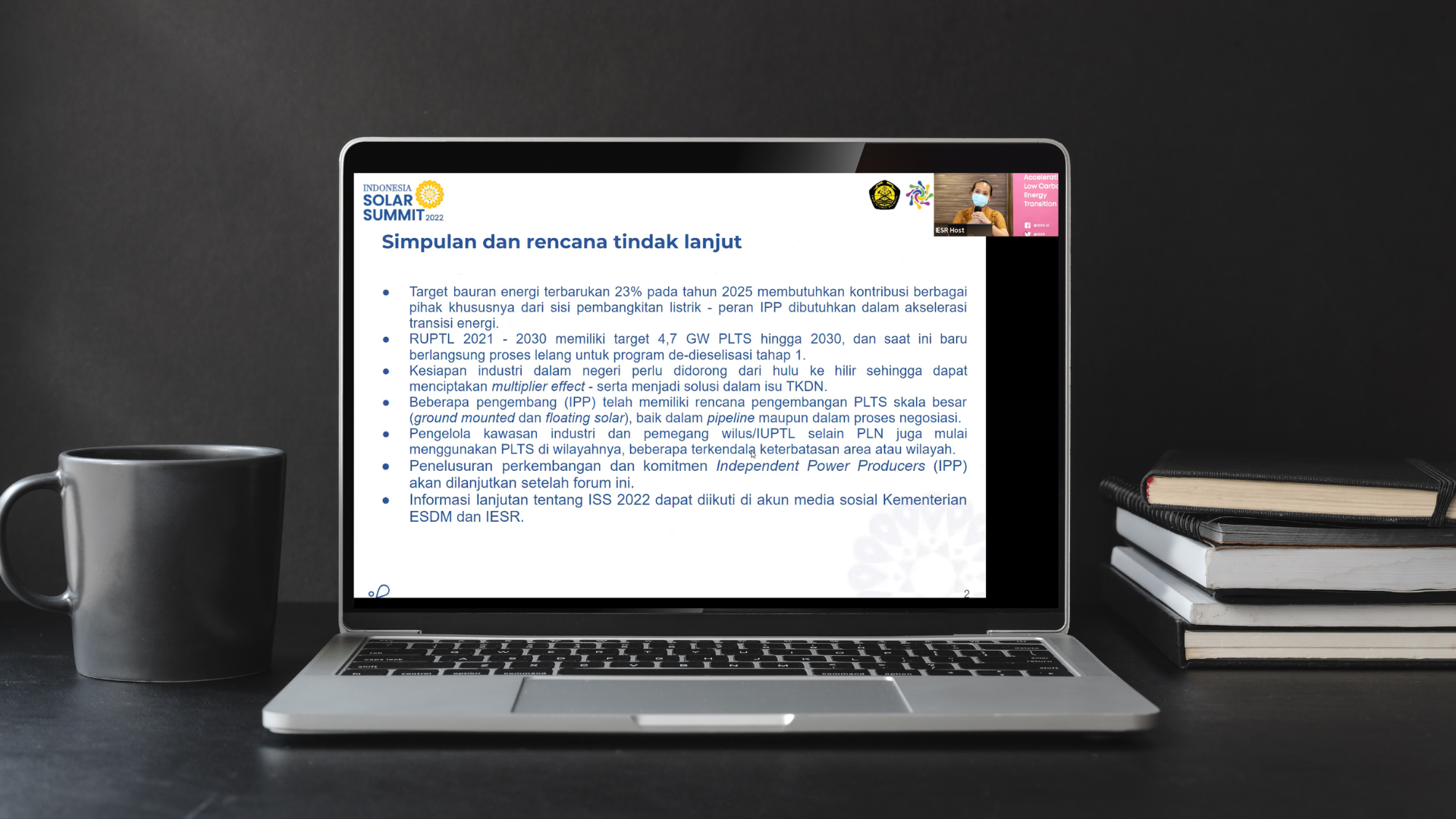Jakarta, 15 March 2022 – Indonesia has potential natural resources that can be allocated to develop solar power plants. Besides, solar power plants as renewable energy are feasible to create and reasonably competitive in price; hence solar might support the achievement of Indonesia’s renewable energy mix and emission reduction targets.
Ahead of the Indonesia Solar…

